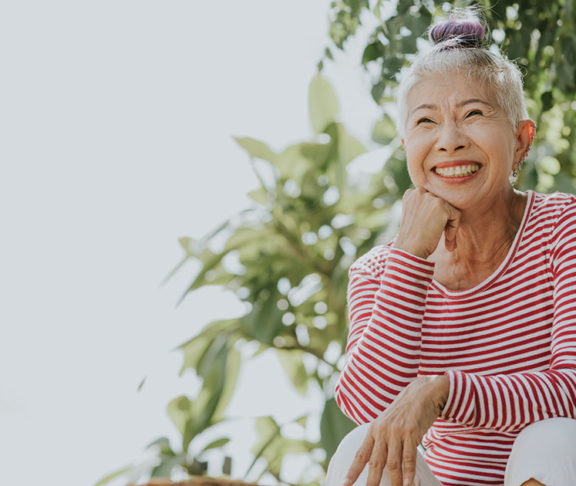Paul Armentano is the deputy director of NORML (the National Organization for the Reform of Marijuana Laws) and co-wrote the book “Marijuana Is Safer: So Why Are We Driving People to Drink?” He talked about the rise of senior cannabis use and what this means for health outcomes, politics, and more.

Paul Armentano
Deputy director of NORML (the National Organization for the Reform of Marijuana Laws)
Is it true that more seniors are using cannabis?
Yes. Older adults are the fastest-growing demographic of cannabis consumers. According to data published in the journal JAMA Internal Medicine in 2020, self-reported cannabis use among people 65 and older increased from under 1 percent in 2006 to more than 4 percent today. Similarly, the percentage of seniors perceiving “great risks” from consuming marijuana is rapidly declining.
What is motivating seniors to turn to cannabis?
Older adults frequently define their cannabis consumption as medical. In addition to perceiving cannabis as an effective therapeutic agent, many seniors also report that it possesses fewer adverse effects than their prescription medicines. As a result, many older Americans acknowledge substituting cannabis products for more conventional medications. Numerous surveys of older Americans find that respondents report significant improvements in their overall quality of life following their initiation of cannabis.
What ailments are seniors using cannabis to treat?
Like the majority of self-defined medical cannabis users, older Americans are most likely to consume cannabis products to mitigate symptoms of chronic pain. Seniors also frequently report using cannabis to improve their sleep and/or to reduce feelings of anxiety and depression.
Are cannabis products effective?
Yes. Surveys consistently find that older adults who consume cannabis report they are more likely to frequently engage in physical activity and possess a greater quality of life than non-users. An Israeli study of more than 2,700 seniors (mean age: 75 years) prescribed medical cannabis products reported improvements in symptom management in over 93 percent of participants. The study’s investigators concluded, “The therapeutic use of cannabis is safe and efficacious in the elderly population.”
Are certain types of cannabis products preferred by seniors?
Older adults are more likely to consume cannabis flowers. They also tend to consume cannabis varieties that contain lower concentrations of THC and higher percentages of CBD. Elderly patients tend to shy away from vape pens and edible products, though they are more likely than younger consumers to use cannabis-infused capsules and tinctures.
Do cannabis products pose any unique safety risks to seniors?
Many seniors report having had little prior experience with cannabis. As a result, they may be susceptible to some of the same side-effects as other naïve users, such as confusion, paranoia, panic attacks, tachycardia, and dysphoria. The risk of experiencing these adverse events may be greatly reduced if seniors mitigate their intake of higher-strength THC products, and if they initially avoid orally consumed products, which possess a delayed onset of effect and are more difficult to self-titrate.
Some older adults report experiencing dizziness after consuming THC, which may theoretically increase their risk of falling. However, empirical data of elderly cohorts has not substantiated this risk.
Those with a history of heart attack or stroke may also be cautioned to avoid cannabis products as some studies have linked cannabis use to an increased risk of adverse cardiovascular events in some people. However, to date, this link is not yet well defined or consistent. Like with any psychotropic agent, seniors are advised to consult with their physician prior to initiating their use of cannabis.
Is cannabis known to be contraindicated with any medications?
To date, limited data exists regarding the potential interactions of cannabis and certain prescription medications. It is known that many older adults experience increased sleepiness following their use of cannabis. These effects may be compounded if cannabis is consumed in combination with certain prescription medications, particularly central nervous system depressants.
Cannabis has also been contraindicated with some blood-thinning medications, like warfarin. By contrast, controlled studies have documented that the adjunctive use of either inhaled cannabis or oral THC can improve the pain-reducing properties of opioids, a phenomenon that “may allow for opioid treatment at lower doses with fewer side effects.”
What are the socio-political implications of the growing acceptance of cannabis by seniors?
The rising use and acceptance of cannabis by older adults has strengthened overall public support for cannabis policy reform. Today, some two-thirds of Americans believe cannabis ought to be legalized — up from roughly 30 percent 20 years ago. Among Baby Boomers, 63 percent now endorse legalization, up from less than one-third a decade ago.
Because older Americans are historically the most reliable and powerful voting block in state and national elections, this growing support among seniors will likely influence a growing number of elected officials to become more receptive to the cannabis policy reform issue.

